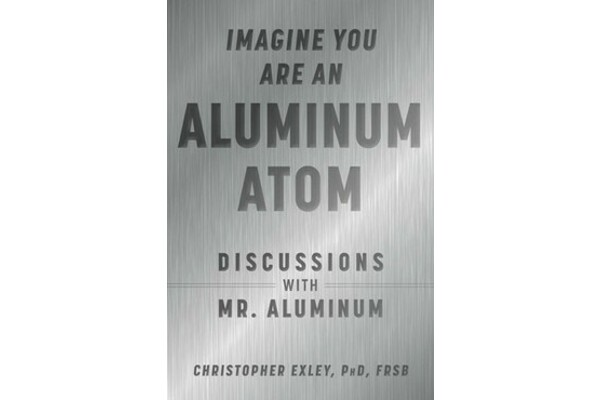Join "Mr. Aluminum," a scientist who has made the study of aluminum his life's work, on a journey of discovery, reflection, and the science of aluminum.
Professor Christopher Exley is a firm believer that science is only useful when it is properly communicated. Scientific papers are difficult vehicles for the wider communication of science and thus he has always endeavored to tell the story of his scientific research as widely as possible through myriad blogs, presentations, and interviews. Through a series of easy-reading entries written for non-scientists, Exley will educate readers about his lifelong scientific passion: aluminum. In scientific circles, aluminum-in relation to human health specifically-has gone the way of the dinosaurs (though, unlike dinosaurs, there has not yet been a popular revival!). Yet aluminum is also the greatest untold story of science.
But why do we all need to know a little bit more about aluminum? Do we need a self-help guide for living in what Exley has coined "The Aluminum Age"? What is it about aluminum that makes it different? What about iron, copper, or any of the so-called "heavy metals," like mercury, cadmium, or lead? Why must we pay particular attention to aluminum? Because its bio-geochemistry, its natural history, raises two red flags immediately and simultaneously.
These two danger signals are easily missed by all of us and easily dismissed by those whose interests are conflicted by aluminum's omnipresence in human life and consequently, are purposely blind to its danger signals. First, aluminum, in all of its myriad forms, is super abundant; it is the third most abundant element (after oxygen and silicon) of the Earth's crust. Second, aluminum is super reactive; it is both chemically and biologically reactive. However, these two red flags identify a paradox, as the abundant and biologically reactive aluminum has no biological function either in any organism today nor in any extinct biota from the evolutionary past. This means in practical terms that when we encounter aluminum in our everyday lives, our bodies only see aluminum as an impostor, something foreign, and something for which we have not been prepared through biochemical evolution. This in turn means that all of our encounters with aluminium are adventitious, random, and chaotic. And potentially dangerous.

